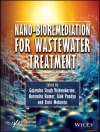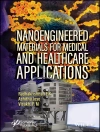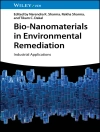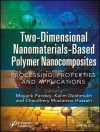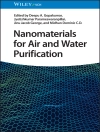This book provides detailed reviews of a range of nanostructures used in the construction of biosensors as well as the applications of these biosensor nanotechnologies in the biological, chemical, and environmental monitoring fields
Biological sensing is a fundamental tool for understanding living systems, but also finds practical application in medicine, drug discovery, process control, food safety, environmental monitoring, defense, and personal security. Moreover, a deeper understanding of the bio/electronic interface leads us towards new horizons in areas such as bionics, power generation, and computing. Advances in telecommunications, expert systems, and distributed diagnostics prompt us to question the current ways we deliver healthcare, while robust industrial sensors enable new paradigms in R&D and production.
Despite these advances, there is a glaring absence of suitably robust and convenient sensors for body chemistries. This book examines some of the emerging technologies that are fueling scientific discovery and underpinning new products to enhance the length and quality of our lives.
The 14 chapters written by leading experts cover such topics as:
* Zn O and graphene microelectrode applications in biosensing
* Assembly of polymers/metal nanoparticles
* Gold nanoparticle-based electrochemical biosensors
* Impedimetric DNA sensing employing nanomaterials
* Graphene and carbon nanotube-based biosensors
* Computational nanochemistry study of the BFPF green fluorescent protein chromophore
* Biosynthesis of metal nanoparticles
* Bioconjugated-nanoporous gold films in electrochemical biosensors
* The combination of molecular imprinting and nanotechnology
* Principles and properties of multiferroics and ceramics
关于作者
Ashutosh Tiwari is an Associate Professor at the
Biosensors and Bioelectronics Centre, Linköping University,
Sweden; Editor-in-Chief, Advanced Materials Letters;
Secretary General, International Association of Advanced Materials;
a materials chemist and also a docent in applied physics at
Linköping University, Sweden. He has published more than 350
articles, patents, and conference proceedings in the field of
materials science and technology and has edited/authored more than
fifteen books on the advanced state-of-the-art of materials
science. He is a founding member of the Advanced Materials World
Congress and the Indian Materials Congress.
Anthony P.F. Turner is currently Head of Division
FM-Linköping University’s new Centre for Biosensors and
Bioelectronics. His previous thirty-five year academic career in
the UK culminated in the positions of Principal (Rector) of
Cranfield University and Distinguished Professor of Biotechnology.
Professor Turner has more than 600 publications and patents in the
field of biosensors and biomimetic sensors and is best known for
his role in the development of glucose sensors for home-use by
people with diabetes. He published the first textbook on biosensors
in 1987 and is Editor-In-Chief of the principal journal in his
field, Biosensors & Bioelectronics, which he co-founded
in 1985.


